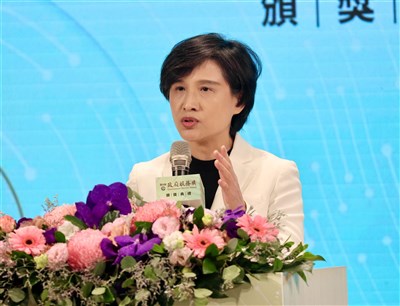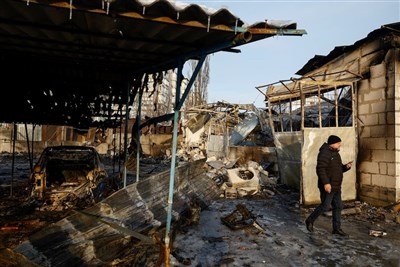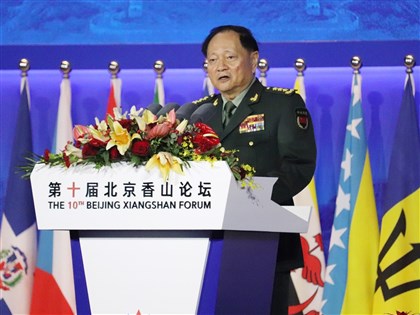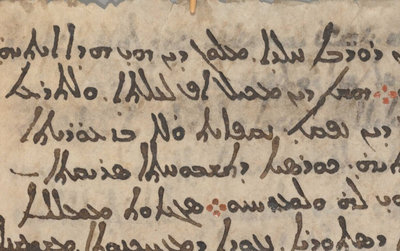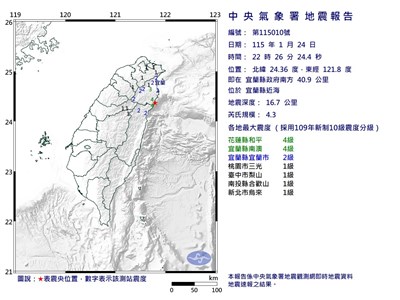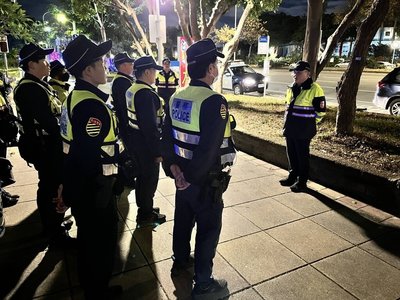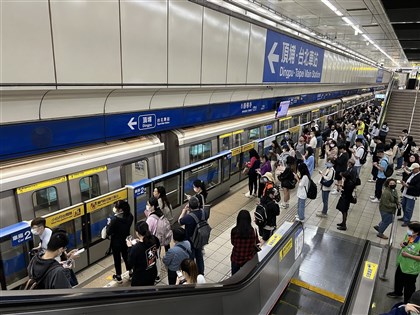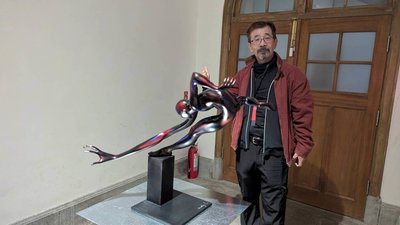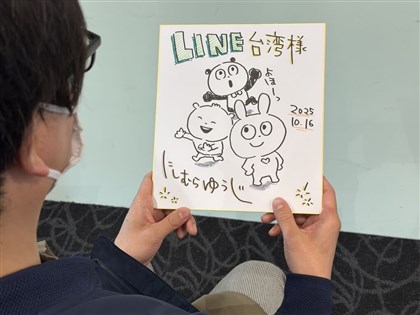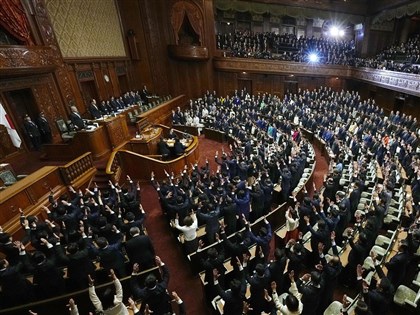回應習近平對台原則 蔡總統中英文談話全文
(中央社2日台北電)總統蔡英文今天下午在總統府大禮堂針對中國國家主席習近平發表「告台灣同胞書」40週年的紀念談話,說明我國政府立場。
總統談話全文如下:
國人同胞,各位媒體朋友,大家午安。
今天上午,中國國家主席習近平,發表了所謂「告台灣同胞書」40 週年的紀念談話,提出了探索一國兩制台灣方案等相關內容,身為中華民國的總統,我要在此說明我們的立場。
首先,我必須要鄭重指出,我們始終未接受「九二共識」,根本原因就是北京當局所定義的「九二共識」,其實就是「一個中國」、「一國兩制」。今天對岸領導人的談話,證實了我們的疑慮。在這裡,我要重申,台灣絕不會接受「一國兩制」,絕大多數台灣民意也堅決反對「一國兩制」,而這也是「台灣共識」。
其次,我們願意坐下來談,但作為民主國家,凡是涉及兩岸間的政治協商、談判,都必須經過台灣人民的授權與監督,並且經由兩岸的政府,以政府對政府的模式來進行。在這個原則之下,沒有任何人、任何團體,有權力代表台灣人民去進行政治協商。
兩岸關係的發展,我在昨天的新年談話,說得很清楚,那就是中國必須正視中華民國台灣存在的事實,而不是否定台灣人民共同建立的民主國家體制;第二,必須尊重2300萬人民對自由民主的堅持,而不是以分化、利誘的方式,介入台灣人民的選擇。
第三,必須以和平對等的方式來處理雙方之間的歧異,而不是用打壓、威嚇,企圖讓台灣人屈服;第四,必須是政府或政府所授權的公權力機構,坐下來談,任何沒有經過人民授權、監督的政治協商,都不能稱做是「民主協商」。這就是台灣的立場,就是民主的立場。
我們願意在「鞏固民主」及「強化國家安全」基礎上,進行有秩序的、健康的兩岸交流,我也要重申,國內亟需要建立兩岸交流的三道防護網,也就是民生安全、資訊安全及制度化的民主監督機制。
兩岸經貿應該是互惠互利,共榮發展;但我們反對北京以「利中」為核心,以利誘及吸引台灣技術、資本及人才「走進中國大陸」的經濟統戰。我們將全力推動「壯大台灣」的各項策略及措施,鞏固以台灣為主體、台灣優先的經濟發展路線。
過去兩年來,台灣善盡區域成員的義務,積極貢獻於兩岸及區域的和平穩定。我們不挑釁,但堅持原則,我們飽受各種打壓,但我們從未放棄對兩岸關係的基本立場與承諾。我要提醒北京當局,大國必須要有大國的格局,大國的責任,國際社會也正看著中國能不能有所改變,成為受到信任的夥伴。「四個必須」正是兩岸關係能否朝向正面發展,最基本、也最關鍵的基礎。
所謂的心靈契合,應該是建立在彼此的相互尊重與理解,建立在兩岸政府務實處理有關人民福祉的問題上。例如,眼前十萬火急的豬瘟疫情。施壓國際企業塗改台灣的名稱,不會帶來心靈契合;買走台灣的邦交國,也不會帶來心靈契合;軍機、軍艦的繞台,更不會帶來心靈契合。
最後,我要重申,九合一地方選舉的結果,絕不代表台灣基層的民意要放棄主權,也不代表在台灣主體性的問題上做出了退讓。
民主價值是台灣人民所珍惜的價值與生活方式,我們也呼籲中國,勇敢踏出民主的腳步,也唯有如此,才能真正理解台灣人的想法與堅持。
總統談話英文翻譯全文如下:
President Tsai Ing-wen, on the afternoon of January 2 in the Presidential Office auditorium, explained the Taiwan government's position on a speech delivered by China's President Xi Jinping (習近平) commemorating the 40th anniversary of the so-called "Message to Compatriots in Taiwan."
A translation of the president's full remarks is as follows:
My fellow citizens and friends from the media, good afternoon.
This morning, China's President Xi Jinping delivered a speech commemorating the 40th anniversary of the so-called "Message to Compatriots in Taiwan," proposing further exploration of a "one country, two systems" scenario for Taiwan. As president of the Republic of China, I want to explain our position.
First, I must emphasize that we have never accepted the "1992 Consensus." The fundamental reason is because the Beijing authorities' definition of the "1992 Consensus" is "one China" and "one country, two systems." The speech delivered by China's leader today has confirmed our misgivings. Here, I want to reiterate that Taiwan absolutely will not accept "one country, two systems." The vast majority of Taiwanese also resolutely oppose "one country, two systems," and this opposition is also a "Taiwan consensus."
Next, we are willing to engage in negotiations. But as Taiwan is a democratic country, all political consultations and negotiations between the two sides of the Taiwan Strait must be authorized and monitored by the people of Taiwan, and conducted on a government-to-government basis by both sides. Under this principle, no individual or group has the right to represent the people of Taiwan to conduct political consultations or negotiations.
The development of cross-strait relations, as I said very clearly in my new year's talk yesterday, requires that: China must face the reality of the existence of the Republic of China (Taiwan), and not deny the democratic system that the people of Taiwan have established together; second, must respect the commitment of the 23 million people of Taiwan to freedom and democracy, and not foster divisions and offer inducements to interfere with the choices made by the people of Taiwan; third, must handle cross-strait differences peacefully, on the basis of equality, instead of using suppression and intimidation to get Taiwanese to submit; fourth, it must be governments or government-authorized agencies that engage in negotiations. Any political consultations that are not authorized and monitored by the people cannot be called "democratic consultations." This is Taiwan's position, a democratic position.
We are willing, on the basis of "consolidating democracy" and "strengthening national security," to conduct orderly, healthy cross-strait exchanges. I also want to reiterate that domestically, we need to set up a three-part security network for cross-strait exchanges comprised of security for people's livelihoods, information security, and an institutionalized democracy monitoring mechanism.
Cross-strait trade and economic relations should be mutually beneficial, and promote mutual prosperity and development. However, we oppose Beijing making "benefitting China" its core focus, using United Front economic means including financial inducements to attract Taiwan technology, capital, and talent to move to mainland China. We will vigorously promote strategies and measures that strengthen Taiwan to consolidate a Taiwan-centric, Taiwan-first path to economic development.
Over the past two years, Taiwan has faithfully fulfilled its duty as a member of the regional community, actively contributing to cross-strait and regional peace and stability. We do not provoke, but uphold our principles. We have suffered many forms of suppression, but have never abandoned our fundamental position and commitments regarding cross-strait relations. I want to remind the Beijing authorities that a superpower must act with the demeanor and take the responsibility of a superpower, and international society is watching China to see if it can make changes and become a trustworthy partner. The "four musts" are the most basic and crucial foundations that will determine whether cross-strait relations develop in a positive direction.
A so-called "spiritual union" should be built on mutual respect and understanding, with governments on both sides of the strait handling issues regarding the people's welfare pragmatically, such as the urgent swine fever epidemic we are now facing. Pressuring international corporations to change their designation for Taiwan won't bring about a spiritual union, nor will buying off Taiwan's diplomatic allies or circling Taiwan with military aircraft and naval vessels.
Lastly, I want to reiterate that the results of the 9-in-1 elections absolutely do not mean that grassroots public opinion in Taiwan favors abandoning our sovereignty, nor do they mean that the people want to make concessions regarding Taiwanese identity.
Democratic values are the values and way of life that Taiwanese cherish, and we call upon China to bravely move towards democracy. This is the only way they can truly understand Taiwanese people's ideas and commitments. Thank you.
- 2019/01/03 12:33
- 2019/01/03 00:26
- 2019/01/02 19:37
- 回應習近平對台原則 蔡總統中英文談話全文2019/01/02 17:17
- 2019/01/02 16:04
- 2019/01/02 13:01
本網站之文字、圖片及影音,非經授權,不得轉載、公開播送或公開傳輸及利用。

